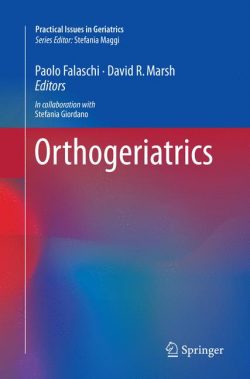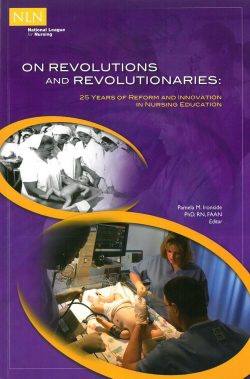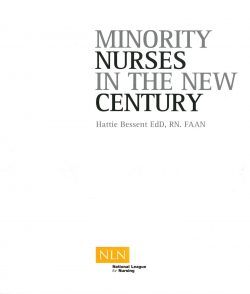Clinical Education in Prelicensure Nursing Programs: Results from an NLN National Survey, 2009 offers the results from the NLN’s survey on clinical education of 2,386 nurse educators, representing all types of RN nursing programs in all 50 United States. The results reflect the views of many leading nurse educators, who contend that advancements in clinical education are essential to easing the nationwide nursing shortage.
Despite the many barriers and obstacles in the education of nurses, the authors, Pamela Ironside, PhD, RN, FAAN, ANEF, and Angela McNelis, PhD, RN, , offer hope and remind readers of the opportunity to create new models to serve patients, students, staff nurses and clinical teachers. They challenge readers to question many current practices to further and better education and care.
Despite the many barriers and obstacles in the education of nurses, the authors, Pamela Ironside, PhD, RN, FAAN, ANEF, and Angela McNelis, PhD, RN, , offer hope and remind readers of the opportunity to create new models to serve patients, students, staff nurses and clinical teachers. They challenge readers to question many current practices to further and better education and care.
Clinical Education in Prelicensure Nursing Programs: Results from an NLN National Survey, 2009 presents the results from the NLN’s survey on clinical education of 2,386 nurse educators, representing all types of RN nursing programs in all 50 United States. The results reflect the views of many leading nurse educators, who contend that advancements in clinical education are essential to easing the nationwide nursing shortage.
Pamela M. Ironside, PhD, RN, FAAN”
http://nursing.iupui.edu/directory/pamirons
Pamela M. Ironside, PhD, RN, FAAN is currently an Associate Professor and Director of the Center for Nursing Education Research at Indiana University. Her research program includes using interpretive phenomenology to explicate the ways new pedagogies influence the practices of thinking in nursing classrooms and clinical courses and the ways in which nursing faculty undertake reform and innovation. She has received funding from the National Council of State Boards of Nursing to study how multiple patient simulation experiences influence students’ clinical judgment and safety competencies and, in collaboration with the Community College of Philadelphia, from the John A. Hartford Foundation to study ways to foster associate degree nursing students’ knowledge, skills and abilities to care for older adults. She is a Fellow in the American Academy of Nursing and is an Academy of Nursing Education Fellow. She is the recipient of the Advancing the Science of Nursing’ award for the Curriculum and Instruction section of the Midwest Nursing Research Society. She was co-editor of the prestigious book series, Interpretive Studies in Healthcare and Human Sciences and was the editor for Volume IV of this series: Beyond Method: Philosophical Conversations in Healthcare Research and Scholarship. She is on the editorial board of Journal of Nursing Education and Nursing Education Perspectives. Her work is widely published in journals such as Journal of Qualitative Health Research, Journal of Nursing Education, Journal of Advanced Nursing, and Nursing Education Perspectives and Advances in Nursing Science. She has presented numerous workshops on pedagogical development and using new pedagogies in classroom and clinical settings both nationally and internationally.
Angela McNelis, PhD, ANEF”
Dr. McNelis, an associate professor at Indiana University School of Nursing, has been lauded for her innovative teaching and learning strategies, nursing education research, faculty development, academic leadership, and collaborative educational, practice and community partnerships. She is a fellow of the National League for Nursing’s Academy of Nursing Education, and has been numerous times for her excellence in teaching and research both locally and nationally. She is currently funded by the U.S. Department of Health and Human Services Health Resources and Services Administration and the National Council of State Boards of Nursing to conduct studies on improving graduate psychiatric mental health education and undergraduate clinical education, respectively.
http://nursing.iupui.edu/directory/pamirons
Pamela M. Ironside, PhD, RN, FAAN is currently an Associate Professor and Director of the Center for Nursing Education Research at Indiana University. Her research program includes using interpretive phenomenology to explicate the ways new pedagogies influence the practices of thinking in nursing classrooms and clinical courses and the ways in which nursing faculty undertake reform and innovation. She has received funding from the National Council of State Boards of Nursing to study how multiple patient simulation experiences influence students’ clinical judgment and safety competencies and, in collaboration with the Community College of Philadelphia, from the John A. Hartford Foundation to study ways to foster associate degree nursing students’ knowledge, skills and abilities to care for older adults. She is a Fellow in the American Academy of Nursing and is an Academy of Nursing Education Fellow. She is the recipient of the Advancing the Science of Nursing’ award for the Curriculum and Instruction section of the Midwest Nursing Research Society. She was co-editor of the prestigious book series, Interpretive Studies in Healthcare and Human Sciences and was the editor for Volume IV of this series: Beyond Method: Philosophical Conversations in Healthcare Research and Scholarship. She is on the editorial board of Journal of Nursing Education and Nursing Education Perspectives. Her work is widely published in journals such as Journal of Qualitative Health Research, Journal of Nursing Education, Journal of Advanced Nursing, and Nursing Education Perspectives and Advances in Nursing Science. She has presented numerous workshops on pedagogical development and using new pedagogies in classroom and clinical settings both nationally and internationally.
Angela McNelis, PhD, ANEF”
Dr. McNelis, an associate professor at Indiana University School of Nursing, has been lauded for her innovative teaching and learning strategies, nursing education research, faculty development, academic leadership, and collaborative educational, practice and community partnerships. She is a fellow of the National League for Nursing’s Academy of Nursing Education, and has been numerous times for her excellence in teaching and research both locally and nationally. She is currently funded by the U.S. Department of Health and Human Services Health Resources and Services Administration and the National Council of State Boards of Nursing to conduct studies on improving graduate psychiatric mental health education and undergraduate clinical education, respectively.
TABLE OF CONTENTSList of Tables”
Foreword
Theresa M. “Terry” Valiga, EdD, RN, ANEF, FAAN”
Acknowledgements”
Introduction
NLN Task Group on Clinical Education Nursing
Blue Ribbon Panel on the Future of Nursing Education Research and Think Tank on Transforming Clinical Nursing Education
Background
Methods
Findings
Barriers to Optimizing Student’s Clinical Learning
Clinical Teaching Practice
Challenges to Optimizing Students’ Clinical Learning
Providing appropriate guidance and supervision
Teaching students to “think on their feet” and make clinical judgments
Providing meaningful feedback to each student
Managing clinical teaching responsibilities with other expectations
Supervising students’ skills performance
Discussion
Limitations
Recommendations
References
Foreword
Theresa M. “Terry” Valiga, EdD, RN, ANEF, FAAN”
Acknowledgements”
Introduction
NLN Task Group on Clinical Education Nursing
Blue Ribbon Panel on the Future of Nursing Education Research and Think Tank on Transforming Clinical Nursing Education
Background
Methods
Findings
Barriers to Optimizing Student’s Clinical Learning
Clinical Teaching Practice
Challenges to Optimizing Students’ Clinical Learning
Providing appropriate guidance and supervision
Teaching students to “think on their feet” and make clinical judgments
Providing meaningful feedback to each student
Managing clinical teaching responsibilities with other expectations
Supervising students’ skills performance
Discussion
Limitations
Recommendations
References





